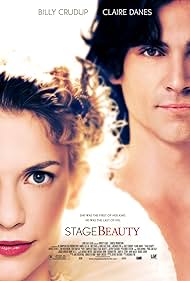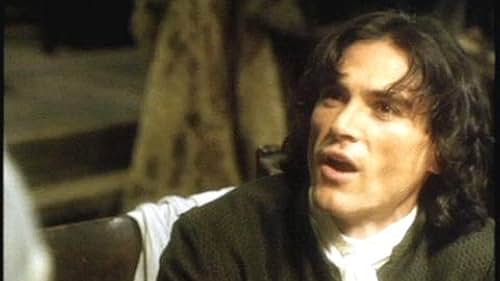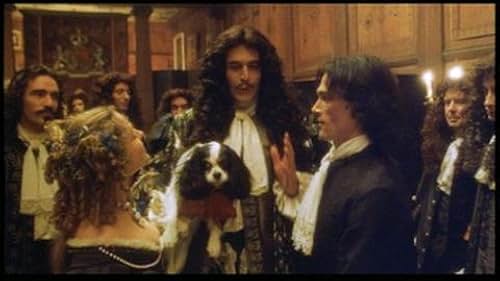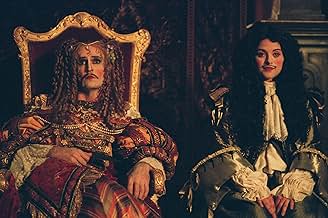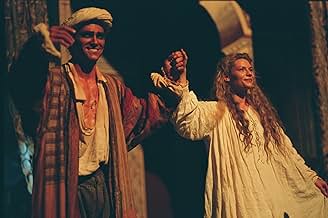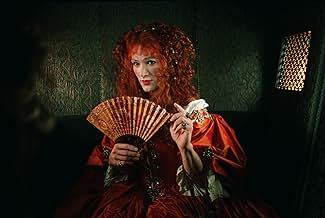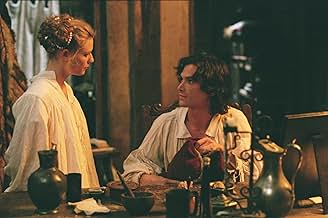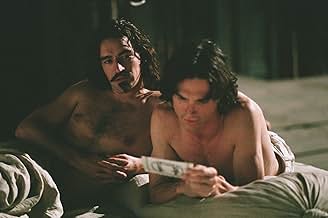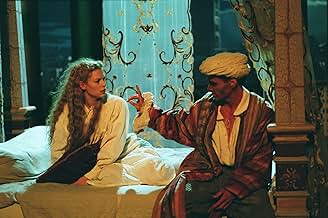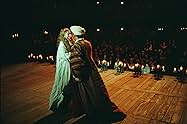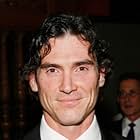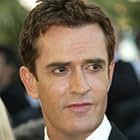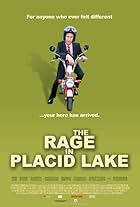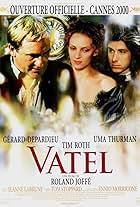A female theatre dresser creates a stir and sparks a revolution in seventeenth century London theatre by playing Desdemona in Othello. But what will become of the male actor she once worked ... Read allA female theatre dresser creates a stir and sparks a revolution in seventeenth century London theatre by playing Desdemona in Othello. But what will become of the male actor she once worked for and eventually replaced?A female theatre dresser creates a stir and sparks a revolution in seventeenth century London theatre by playing Desdemona in Othello. But what will become of the male actor she once worked for and eventually replaced?
- Awards
- 4 wins & 1 nomination total
Featured reviews
Ned Kynaston (Billy Crudup) is the greatest actor and the most beautiful "woman" of the English stage. He played several women's part and his most famous is the role of Desdemona in William Shakespeare's Othello. He is studied, admired, loved, and envied by his dress keeper, Maria (Claire Danes). She watches from the wings and longs to act and she does so behind Kynaston's back and in low pubs before a royal official, the Duke of Buckingham (Ben Chaplin). Then the chain of events unfold as Maria is introduced to Charles II (Rupert Everett) and his mistress Nell Gwyn (Zoe Tapper) who then declares that women will be given the freedom to perform in theater.
As Maria's fame rises and women are playing more and more of the female roles, Ned Kynaston (the last of his kind of actors) is casted aside. As an actor and as man, Kynaston had learned to suppress all masculinity in order to gain the grace and beauty of a woman. He knows only how to portray women and he is lost in learning to play male roles. But then again Maria is unable to play the role of Desdemona as a real woman. Both Kynaston and Maria fall in love and into passion as they learn from each other their own sexual identities and to channel their femininity and masculinity.
I fell in love with the film's story and with the performances of Billy Crudup and Claire Danes. As Kynaston, Crudup reveals vulnerability and strength as a man who discovers himself as a man (and a very hot one at that) through the role and eyes of being a woman. As Maria, Danes is beautiful and real: those tears are real! She can cry on cue and with the heartbreak of a real woman in love and envious of the man she loves. Maria is a strong, forthcoming, and in way a modern actress ahead of her time. She is not an "Eve" from All About Eve, she is a Viola Delesop from Shakespeare In Love, but real. The love scene between Danes and Crudup is sexy, tender, and passionate showing that explicit sex and nudity is not always necessary. They look into each other's sides and truly learn from each other as man and woman.
This is a highly recommended film for those who love acting, period pieces, or just if you want to see a really good film, "Stage Beauty" is very much the film to watch.
"Stage Beauty" is set in the world of seventeenth-century Restoration theatre, but the stage serves as a microcosm for life itself, and the roles played by the actors before the public mirror the roles they play in their private lives. The question is, do they create their roles, or do their roles create them?
Ned Kynaston (Billy Crudup) is an actor who takes on women's roles, since real women are not permitted to do so. He has been thoroughly trained and schooled in the then highly stylized technique of portraying women -- to such an extent that any trace of masculinity seems to have been drummed out of him.
His dresser Maria (Clare Danes) yearns to be an actress herself, but is prevented from doing so by the narrow conventions of Puritan England -- until Charles II is restored to the throne and decrees that, henceforth, real women shall play women's roles on the stage. A whole new world opens up for Maria, but it looks like curtains for Ned.
What happens next is pure anachronism: Ned and Maria are able to rise above the limitations and constraints of their era. Not only do they transcend their gender or sex roles, but they overcome their classical training and, in effect, engage in Method acting, a technique still three hundred years away in the far-distant future. When he teaches Maria how to break the mold and play Othello's Desdemona in a whole new, natural way, Ned becomes a seventeenth-century Stanislavsky.
But, by George, it works. Their performance of the celebrated death scene from "Othello" sends shock waves through an audience accustomed to pantomime and exaggerated gestures -- and it electrifies us as well.
Not since Joseph Fiennes and Gwyneth Paltrow in "Shakespeare in Love" have an actor and actress so shimmered and shone simultaneously on stage and screen. One hopes that Billy Crudup and Clare Danes will be remembered for their luminous performances at the 2005 Academy Awards.
Don't expect an elegant historical romp from Stage Beauty; it's much more than that. Director Richard Eyre (Iris) and screenwriter Jeffrey Hatcher have loosely interpreted true events to deliver a passionate, romantic journey of gender-bending self-realisation set in the bawdy world of the British Restoration, circa 1660.
In a time when women are banned from acting on stage, King Charles II is on the throne, accompanied everywhere by his vulgar but merry mistress, Nell Gwnn. Meanwhile Ned Kynaston (Billy Crudup) is the most celebrated leading lady of his time. He is adored by his audiences, by his lover and patron the Duke of Buckingham, and secretly loved by his dresser Maria (Claire Danes). But when aspiring actress Maria's illegal performance as Desdemona in Othello triggers royal permission for women to act on stage, Kynaston's fall from grace is swift.
This is an actors' film, where the talents of Danes and in particular, Crudup, shine. (Their remarkable relationship triggered an off-screen romance.) Crudup is taut as the bisexual Kynaston, trained to be a calamity and actress since early adolescence, and emotes powerfully as he struggles with his sexuality and identity in an unfriendly new political landscape. He is alternately a catty drag queen, angry young man and committed thespian, without ever straying beyond credibility. In contrast, Danes is luminous but unsure as Maria. A talented supporting cast includes Rupert Everett, providing comic relief as the languid King, while Ben Chaplin is sensual as the self-serving Duke.
Stage Beauty has been compared to Shakespeare in Love, but although it's less successful, it's far less contrived. Although Stage Beauty is a love story, you don't know how things will resolve. The pace is less brisk than in a more manufactured film, but it's also more realistic, enhanced by production design and costuming which depicts both the grit and the sumptuousness of the time.
While at first the on stage acting grates, it is deliberate. As Stage Beauty progresses, the acting technique evolves to resemble 19th Century Naturalism not true to life, but faithful to the emotional journey of the characters. It's a special film that will take you on an emotional journey too.
**** out of ***** stars.
It tells the tale of Ned (Billy Crudup), a young actor who specialises in portraying women on stage. In a world where only men are allowed to tread the boards, Ned's "Desdemona" (from Shakespeare's Othello) is the closest thing 17th century audiences get to femininity in theatre. However, a young upstart in the form of Maria (played by Clare Danes) wants to change all that. She has a passion for drama and unfortunately the bisexual Ned. With the help of King Charles II (Rupert Everett), she may just get her wish, changing theatre forever, and hopefully pick up Ned on the way.
When thinking of the themes of the film, many people dismiss it as a clone of Shakespeare in Love. This is unfair- the film is more thought provoking, substantial and better acted than the aforementioned Oscar snaffler. It explores themes of sexuality and gender with insight and intelligence as well as telling (and, in fact enthralling us with) a love story. As previously referred to, the acting is exceptional, especially the two leads (Danes and Crudup) who shine. The supporting cast is strong too, with Richard Griffiths as a heterosexual prequel to his role in Withnail and I, Tom Wilkinson brimming with quiet intensity as Betterton and Everett hamming it up wonderfully as the King.
Even if it does end on a slightly trite note (not to give too much away, but its' "birth of method acting" shtick irritates), Stage Beauty is a funny, heart-warming and occasionally quite cerebral meditation on love and art. What more could any theatre, or film lover for that matter, want? And don't say Shakespeare In Love!
Storyline
Did you know
- TriviaClaire Danes and Billy Crudup became a couple after the filming of this movie. Crudup left his long-time girlfriend Mary-Louise Parker for Danes.
- Goofs"Sex" is used by characters as shorthand for sexual intercourse, a meaning the word didn't have until the 20th century.
- Quotes
King Charles II: Why shouldn't we have women on stage? After all, the French have been doing it for years.
Sir Edward Hyde: Whenever we're about to do something truly horrible, we always say that the French have been doing it for years.
- How long is Stage Beauty?Powered by Alexa
Details
- Release date
- Countries of origin
- Official sites
- Language
- Also known as
- Compleat Female Stage Beauty
- Filming locations
- Production companies
- See more company credits at IMDbPro
Box office
- Gross US & Canada
- $782,383
- Opening weekend US & Canada
- $38,654
- Oct 10, 2004
- Gross worldwide
- $2,307,092
- Runtime1 hour 46 minutes
- Sound mix
- Aspect ratio
- 2.35 : 1
Contribute to this page

